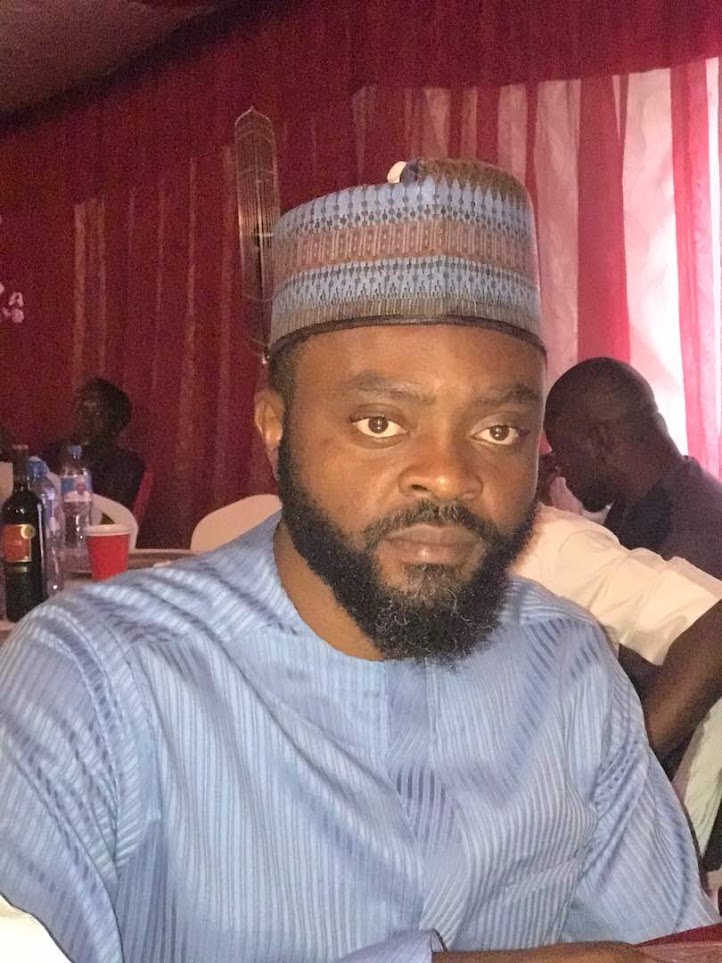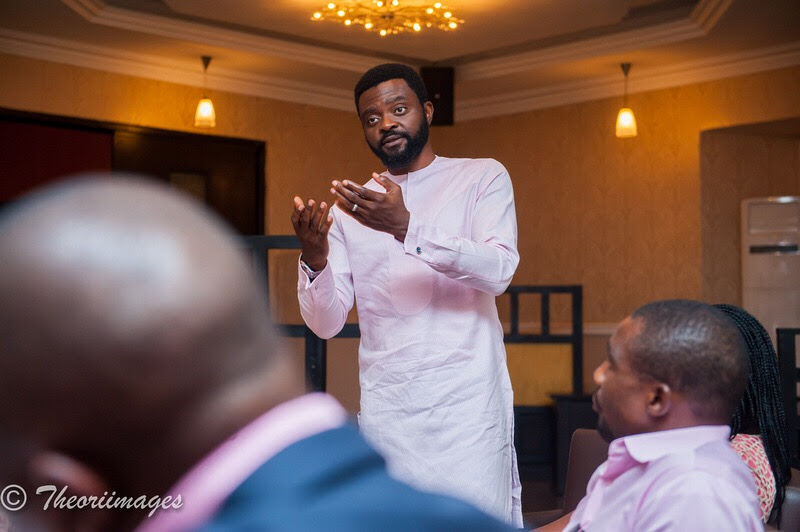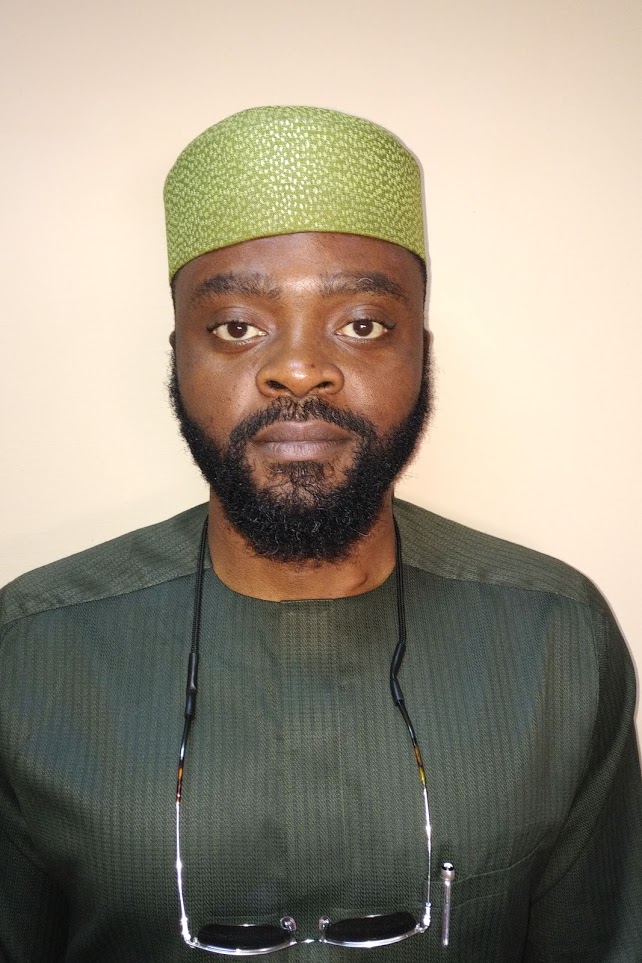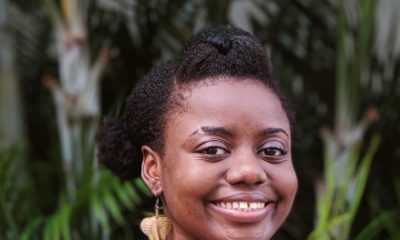Career
“Academic Infrastructure Isn’t Just Classrooms ” Dr. Maiye Ariyo Shares His Experience Getting a PhD in Information Systems

A technical adviser on Monitoring and Evaluation to the Honourable Minister of Agriculture and Rural Development, Dr. Maiye Ariyo is one who plays an important role in the country’s agricultural sector. He admits to being fascinated and very passionate about the limitless potential of information systems in business and societal development, and indeed, he brings that to bear on any role he finds himself engaged in. As part of our focus on high academic achievements, BellaNaija had the chance to chat with Dr. Ariyo about his work. We hope you are inspired by his story.
***
Thank you for talking to us. Tell us about the inspiration to get a doctorate in Information Systems?
I had seen or been involved in the implementation of various nationwide systems that had obvious potential socio-economic benefits to Nigeria, such as the National Identity Card, INEC’s Voters’ Register, and the NIS’ International Passport. However, deployment of such systems has been problematic to the extent of the NIC taking about 40 years to implement – since 1978. This inspired my academic research and formed the thesis of my Ph.D. and subsequent academic publications to date. My area of focus is exploring how socio-economic development can be achieved with the deployment of information systems, and addressing why this isn’t the case in many developing countries, such as Nigeria.
But why a Ph.D. though? You could have stopped after the B. Sc, why go further?
I was a recipient of the Dorothy Hodgkin’s Award from the Engineering and Physical Sciences Research Council of the UK, which covered all tuition-related expenses for the duration of my study for a Ph.D. at the Brunel University in West London. Hence, an inherent opportunity to conduct research in information systems, enabled by the scholarship award from the EPSRC, was mostly responsible for my decision to study for a Ph.D. Plus, I thought it cool to have the Ph.D. appendage to my name.
What were the most challenging parts of the program?
Many things are difficult with being a Ph.D. student beyond the obvious study challenges of burning the midnight oil. Not in any order of importance: time away from home and beloved country, paid employment, family and friends, focus on the Ph.D. agenda for 3-4 years, and having to avoid most social activities. All of these can be summed up into things that may constitute a distraction to any line of thought or reasoning which one is currently conceptualizing or developing towards a thesis. This perhaps explains why Philosophy Doctors are often referred to as nerds or weirdos. Also, the ways in which these challenges come together make the study experience more difficult. I guess the “systems theory” of a whole being greater than the sum of its parts also applies to negative components.

Did the need to remain abroad and not have to come back to Nigeria have anything to do with it?
I never had a need to remain abroad. I returned home once I completed my master’s degree in Information Systems Management amidst job offers in the UK. I only went back for the Ph.D. and returned in a similar manner once my thesis was approved.
When it comes to the dissertation, what would you say separates the “almost finished” from a job well done?
The Ph.D. is often an erratic progression on a confusion spectrum. At some point one seems to have found the right answers or arguments to address focal research questions, only to uncover more challenging issues. However, when you start visibly noticing nods of assent from your supervisors, colleagues, and professors at academic conference presentations, you begin to understand how to edge your thesis toward “a job well done.”
A lot of people seem to be achieving milestones in our current generation without nearly a Ph.D. Are there still advantages to having a Ph.D. in this dispensation? Has having one given you any edge so far?
A Ph.D. teaches you to reflect deeply on any cause, agenda or argument you project. That also includes listening and learning from others’ opinions with the aim of refining and improving your ideas. As a Ph.D., you engender the discipline to constantly improve on your lines of thought and reasoning beyond average.
How has your Ph.D. helped you in your present career? And how should other aspiring Ph.D. holders use their backgrounds to their advantage?’
It has helped in understanding how the most complex of challenges can be carefully deconstructed and then addressed or resolved in structured and well thought out manners. The concept of deconstruction is one which aspiring Ph.Ds should hold to heart.

In hindsight, would you do it again?
I believe so. During the program, I mentally gave up many times and resolved to go back to my old life, only to sleep over whatever challenging issue there was and return to the work. With hindsight, however, I would take extra care to avoid certain mistakes. Otherwise, I might pursue a career in football.
How do you think you can improve the Nigerian state with the knowledge you have garnered from your studies?
Simply put, my thesis uncovered how a complex blend of corruption, bureaucracy, tribalism, and skepticism can negatively affect the deployment of information systems for the socio-economic development of a country. My focal case study was the national identity card which gave clear insight into the delays in implementation i.e. 40 years. These issues need to be adequately addressed by sponsors and other stakeholders who are involved in developing such systems.
What is your opinion on the system of education in Nigeria? What needs to be changed or introduced?
Our education system is evidently in a poor state. I believe we need to come to the realization and acceptance that education is not cheap. Our government needs to invest more resources which should be judiciously managed. Also, we need to come to the realization that academic infrastructure isn’t just classrooms and administrative buildings, but investments in research and capacity building for tutors, amongst other things.
What advice would you give those looking to embark on the Ph.D. journey? Also, what encouragement do you have for current Ph.D. candidates?
They should care to establish convincing and justifiable reasons why they want Ph.Ds. These are the stimuli or inspiration that can keep them on track, especially in resolving challenging situations that may lead to quitting the program. And of course, just thinking it’s cool to have the Ph.D. appendage isn’t sufficient to carry one through the challenges.

If you have more questions for Dr. Ariyo, you can reach him via e-mail: [email protected]





















